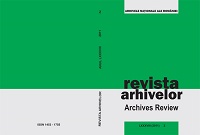
We kindly inform you that, as long as the subject affiliation of our 300.000+ articles is in progress, you might get unsufficient or no results on your third level or second level search. In this case, please broaden your search criteria.


During the functioning of the bipolar system and after its collapse, one of the leading aims of foreign policy of the United States towards the Near East was to ensure stability of the Muslim befriended states by taking political, economic and even military measures. The country that played the most significant role in their policy was Egypt.During the cold war the breaking moment in bilateral relations between the Arab Republic of Egypt and the United States was signing the Camp David Accords between Egypt and Israel in 1978. The United States posed as a mediator between Egyptian and Isreali representatives. Therefore, since the 1970’s and until the Arab Spring broke out in 2011, we can talk about the influence of American-Egyptian relations on the situation in the Near East, and also how the United States strived to guarantee peace in Israel and how they tried to resolve the Israeli-Palestinian conflict through tightening the relations between Washington and Cairo.The overthrowing of Hosni Mubarak was a starting point for the most serious crisis in the American-Egyptian relations since the Camp David Accords. It became an unprecedented challenge for the US policy towards Egypt, and involuntarily set a new trend in policy of the incumbent administration of Barack Obama. It seemed that following the overthrowing of the pro-American regime, not only would the US lose their powers in stabilizing the order in the Near East, but also a political, military and economic partner, a partner that effectively supported their actions in order for the Egyptian-Israeli treaty to keep in power. It could be inferred that the Arab Spring in Egypt would imply the end of the status quo in relations between the US and Egypt, and that the fact that it was the Islamists who took over the power would influence a change in the policy of the US towards Egypt. Despite of all new challenges in their relations, elements of continuity are visible and they are to guarantee the status quo in the Near East and the North Africa.
More...
Influencing Tomorrow. Future Challenges for British Foreign Policy, pod redakcją Douglasa Alexandra i Iana Kearnsa, Guardian Books & Institute for Public Policy Research, London 2013, ss. 342.
More...
For many observers of Egyptian political life, the events of 2011 came as a surprise. The revolution in Tunisia was of particular importance for the course of events in Egypt. The leaders of the initial opposition activity were primarily young people. The Revolution Youth Coalition was the most active formation in the 2011 revolution. Certain aspects of the situation, however, seemed dangerous to the international situation, which aroused suspicions in the United States and Israel.On February 11, President Mubarak resigned and handed power over to the Supreme Military Council. The army, which had been acting as a mediator thus far, came out as the winner of that situation. The Muslim Brotherhood , which was mainly a religious organization and was only marginally involved in the events of the days of anger, was another force that had a chance to take advantage of the resulting state of affairs. Researchers of Egyptian politics noticed that these two forces were competing for power. In their predictions, they did not mention liberal and democratic environments and, as later events proved, they were right. The later success of the army was influenced by decisions taken immediately after the fall of Mubarak, i.e., the transformation of power structures rather than the change of political order.
More...
The paper discusses and analyses the link between party system institutionalization and the effects of electoral laws in post-communist countries. Empirical studies show that the occurrence and strength of the psychological and mechanical effects of electoral laws change as time passes since the fall of communism and party systems become more institutionalized. The psychological effect (strategic voting) does not occur in the first decade after the transition to democracy and the mechanical effect performs a primary role in reducing the party system complexity. In the second decade, strategic voting reveals its significance and the mechanical effect weakens.
More...
The aim of this paper is to present the views of a politically involved association of Russian intellectuals on Ukraine within the context of the events that have taken place in that country since the Euromaidan. The association in question is the pro-Kremlin Izborsky Club, which has a status of an informal think-tank. The club officially brings together 31 intellectuals who are known figures in Russian political, economic, social and cultural life. Its members took part in the creation of propaganda justifying the Russian policy towards Ukraine after the outbreak of the revolution in the country in November 2013. Western newspapers (articles in “Foreign Affairs”) recognized some members of the association as the major “prompters” and inspirers of the annexation of the Crimea. This article presents the Izborsky Club’s views on Ukraine in order to shed light on a significant phenomenon in the Russian public space as one of the explanations for why the political line of the Kremlin and President Vladimir Putin enjoys consistently high support despite the sanctions imposed by the West against Russia and its international isolation. This presentation is also an illustration of the proxemic tensions relating to the emotional relationships between people and space (in this case, the Russians and the area of influence of Russian culture), which are part of the ideology of geopoliticism – perceiving all spheres and fields of human life through the prism of geopolitics – characteristic of Russia.
More...
The aim of this article is to present the Indian nuclear programme in terms of the typology of nuclear proliferation models proposed by Scott D. Sagan. This typology includes three models: security, internal policy and standards. Sagan presents the nuclear programme, which was completed by a test in 1974 (then it did not lead to the acquisition of operational nuclear weapons by India), as an example of the model of internal policies. The author, however, focuses on the processes that took place two decades later. He analyses the situation of the 90s and a number of phenomena which culminated in a series of nuclear tests in 1998. The author argues that those processes to the greatest extent can be described using the model of standards which emphasizes the symbolic importance of nuclear weapons.
More...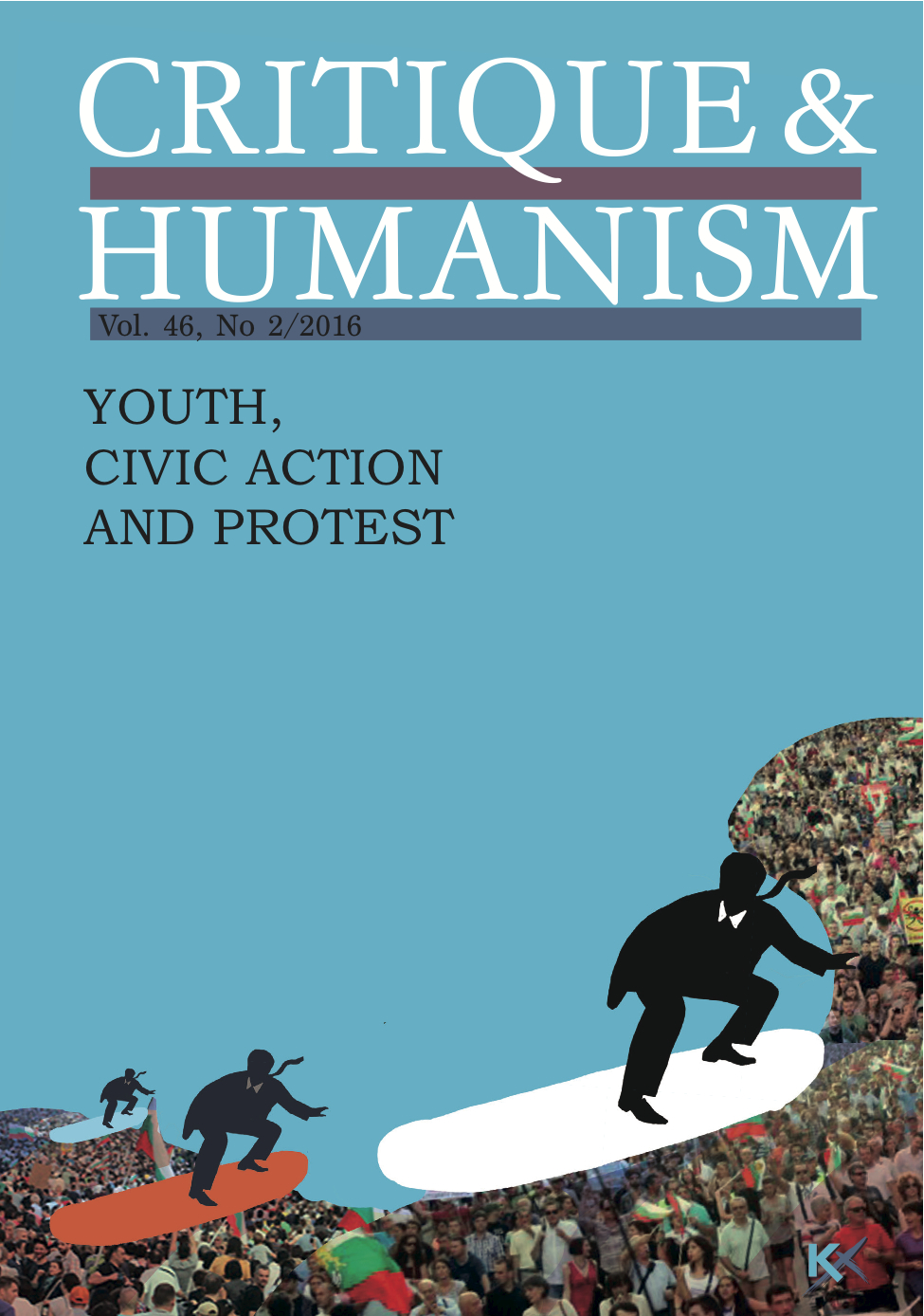
This article revisits conclusions from my earlier ‘The Refugee and the City: Is the Camp Indeed a Space of Exception?’ (Critique & Humanism 42/2013). There, I analyzed Michel Agier’s perspective of the refugee camp as a space of exception (a concept, in turn, based on Giorgio Agamben’s ‘state of exception’). My discussion then was driven by my own ethnographic material on Palestinian refugee camps in Lebanon, as opposed to the massive refugee camps in Africa which seemed to have been the base for Agier’s conceptualization. However, in 2015, hundreds of thousands of refugees entered Europe, in what the European media and many of its governments proclaimed to be a ‘refugee crisis in Europe’. This crisis rhetoric bears resemblance with that of the‘state of exception’, representing the suspension of law and politics. But beyond media and governmental rhetoric, is Europe indeed facing a crisis and, if so, what is its nature? Is Europe on the brink of a state of exception?
More...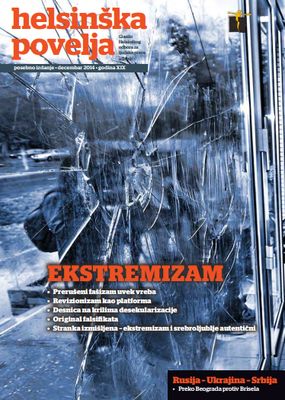
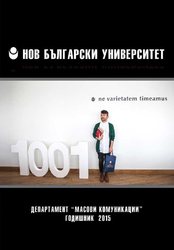
In the study "Cinema in Shadow" Assoc. Prof. Petia Alexandrova, PhD shares her thoughts about cinema after 1989, which ceases to be a prestigious and wealth bringing occupation and becomes a shadow of itself from the 70s and 80s of the twentieth century. But somewhere off the main stage is formed a niche for small and medium formats as an alternative: short movies, movies omnibuses, independent, experimental and art projects, hybrid forms between video, performance and avantgarde.
More...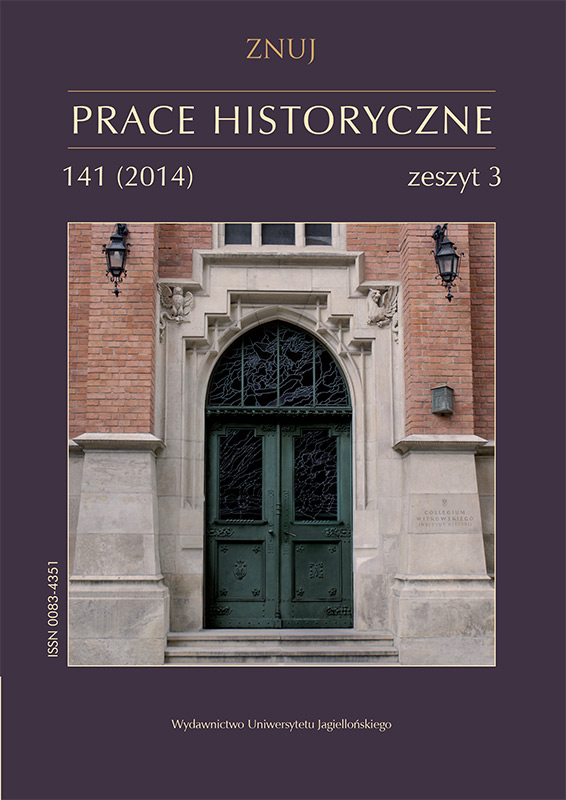
Year 2011 marked a turning point in the contemporary history of the Middle East as the region witnessed the culmination of political upheavals, commonly known under the name of the Arab Spring. Bahrain is an exceptional case among the countries affected by the political revolts. It is the only monarchy of the Arabian Gulf, where the protests could potentially have posed a danger to the current political system. Nonetheless, the monarchy under the rule of the dynasty of Al-Khalifa survived the blow unchanged. Demonstrations were pacified and contained to areas inhabited by the Shi’a population. The aim of this article is to analyse the factors that led to the upheaval as well as to assess why the royal dynasty eventually consolidated the power in their hands. The article allows for a deeper understanding of the resilience of monarchy in the Arabian Gulf.
More...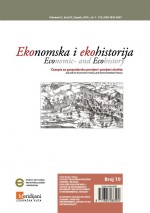
In this paper we will outline three time periods through which we will describe the main developmental processes in formation of civil society and environmental movement in Croatia. In the first part of paper we will describe beginnings of civil society formation in Croatia still being a member of Federal Republic of Yugoslavia. Awareness of environmental problems in Croatia and Yugoslavia appeared relatively early, during ‘70 (last century), not lagging much behind the developed countries, but still in a quite smaller extent. Reactions of the system regarding warnings about environmental deterioration and pollution coming from below have been restricting and civil society had limited impact. As the political system changed, and as Croatia gained independence, new processes are appearing on the civil society scene. In second part of paper we will describe development and change of non-governmental organizations / environmental movement in the period from 1990 till today. Over past 25 years number and profile of environmental NGOs in Croatia has changed constantly in number and character, but in last couple of years the civil society ‘scene’ has stabilized and matured. In third part of paper we will outline the state and profile of environmental non-governmental organizations in Croatia in 2014. Then we will adress most recent relevant surveys, Sustainability Index of civil society orgnizations and Civil society index, and we will outline the part of qualitative research that refers to the sectoral perception of environmetal NGO-s. Finally we will concludeabout the state and direction of environmental organizations development in Croatia.Regarding the later we can speak of well-formed and developed environmental movement in Croatia, although not mass and large-scaled. The state of environmental organizations is improved in almost every aspect, except in financial segment regard in the economic crisis. Nontheless, dispite the improvments in public perception, environmental organizations are still not recognized as equal partner by the policy and private sector.
More...
Two decades that have passed after the tender for a graphic design of the official currency coins of the Republic of Croatia was commissioned in 1993 make a fine opportunity for a short study of both the tender itself and the accompanying circumstances that surrounded it. A study of both published and unpublished material revealed a certain inconsistency between the official version of the events and their actual development during the first half of 1993. The main controversial points are the tendering for the design of Croatian kuna before the Parliament actually changed the name of official Croatian currency (a subject treated at some length in the text) and the motivation of the members of the Commission for Drafting a Proposal for a Monetary System Concept and the Production of the Republic of Croatia Banknotes in their choice of the currency’s name (which is only summarily treated in the paper).
More...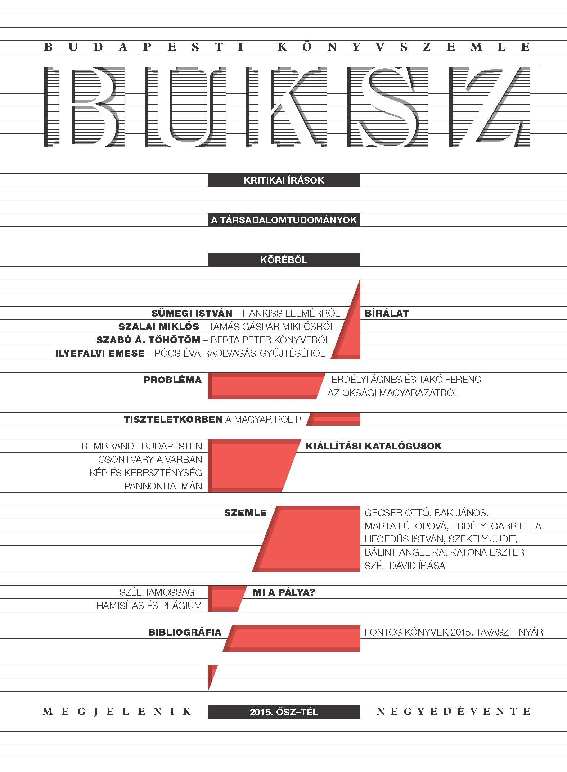
Magyar polip – A posztkommunista maffiaállam. Szerk. Magyar Bálint Noran Libro, Budapest, 2013. 412 oldal, 3390 Ft; Magyar polip: A posztkommunista maffiaállam 2. Szerkesztette és az előszót írta:Magyar Bálint, Noran Libro, Budapest, 2014, 439 oldal, 3990 Ft; Magyar Bálint: A magyar maffiaállam anatómiája Noran Libro, Budapest, 2015. 312 oldal, 2990 Ft
More...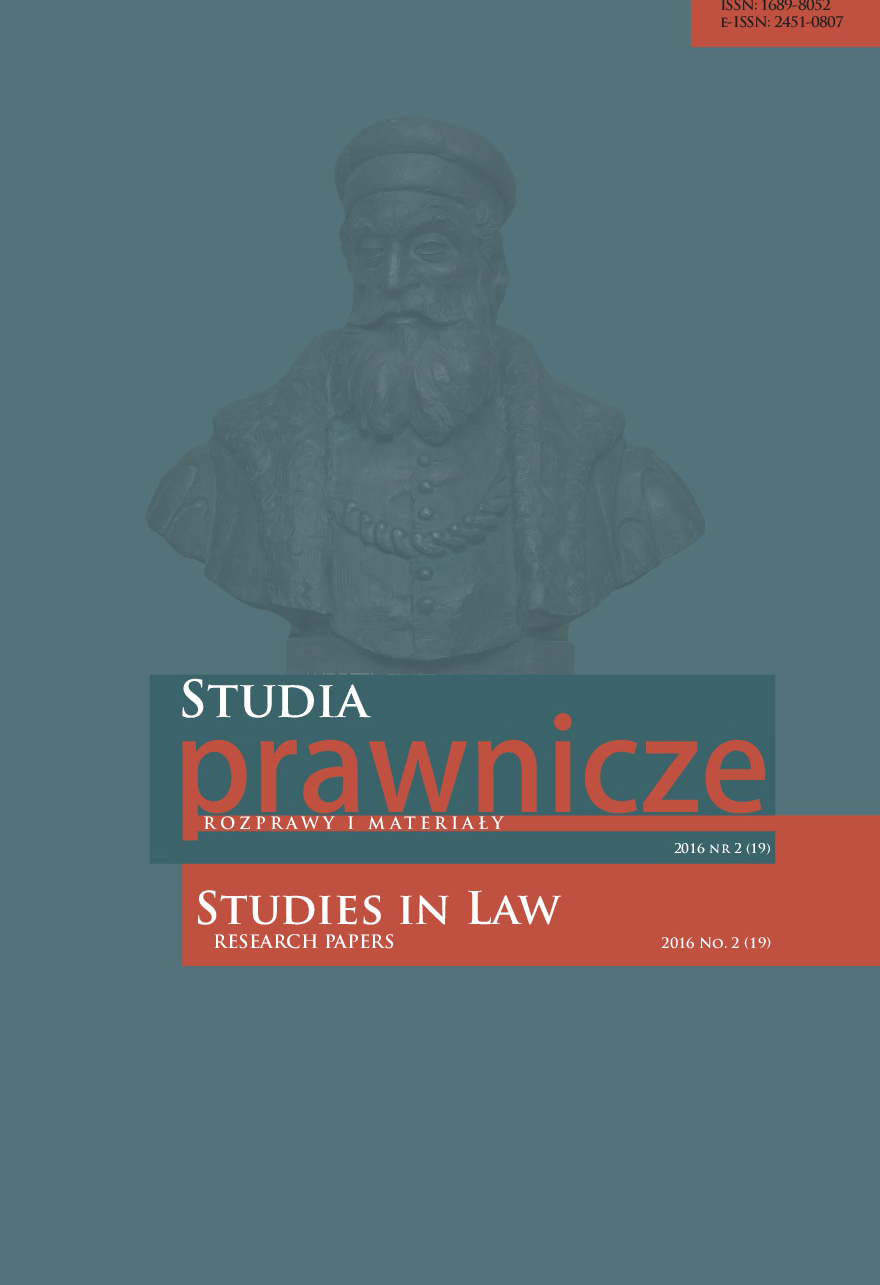
One of the institutions, which underwent some significant changes as a result of the act amending The Criminal Code of 20th February 2015, is a mistake of fact under the Article 28 (1) of the Criminal Code. This institution is related to such basic issues of The Criminal Code as fault and a subject party. On the one hand, it standardises exclusion from criminal liability but on the other hand it entails certain doubts with regards to the amended law. It is questioned whether the amendment was actually necessary. As many theoreticians indicate, the consequences of the implementation of this regulation basically remain the same as in the case of the previous one. This amendment is perceived as a meaningless change only connected to its form. What is more, there is a new element added to the institution of a mistake of fact, namely justification. However, this element is not a novelty in the Criminal Code. The aim of this work is to assess the amendment and its purposefulness.
More...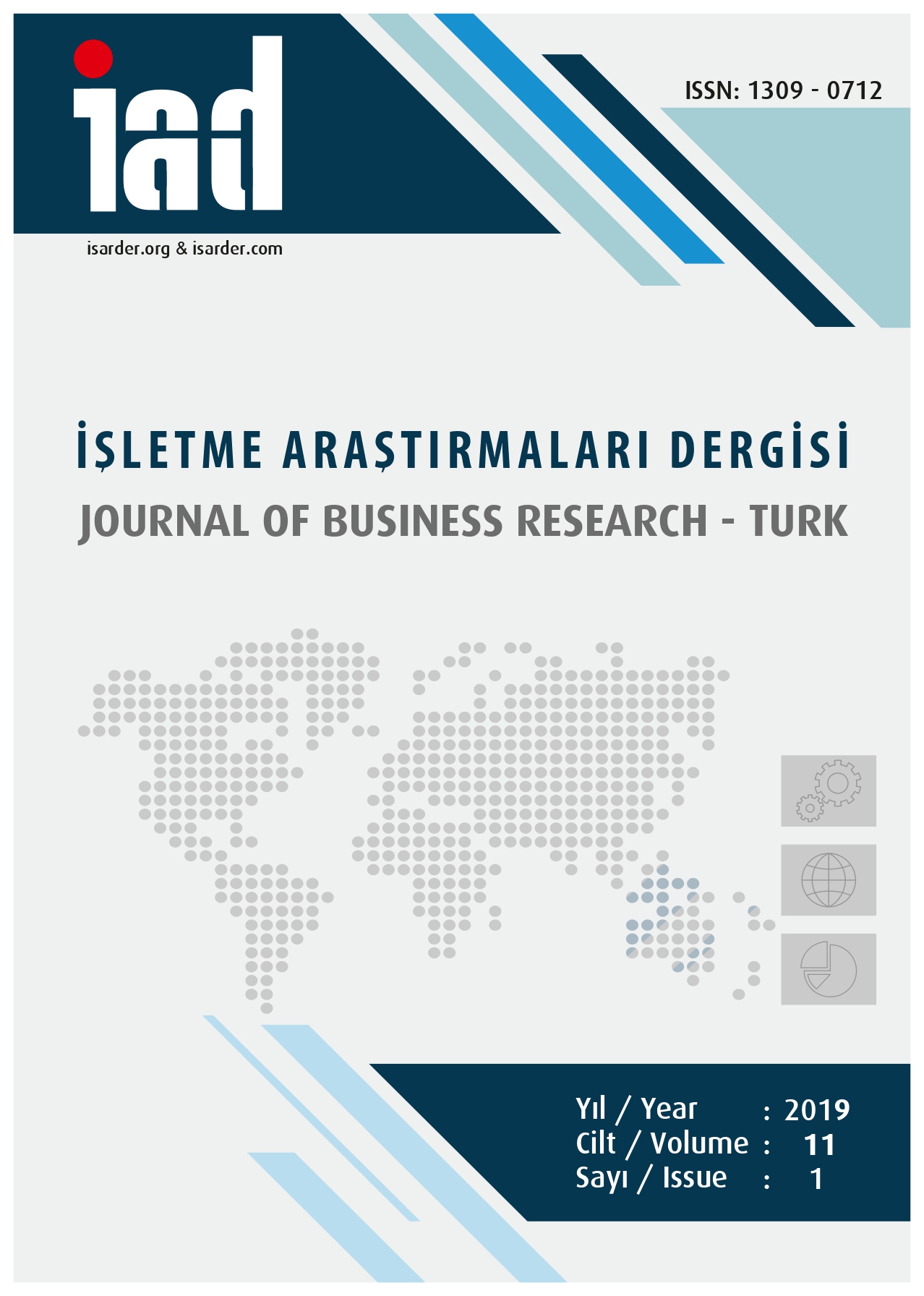
Purpose – The most important problem faced by of entrepreneurs is the difficulty in accessing financial resources. Crowdfunding model is one of the new financial methods used by entrepreneurs to reach the capital they need. The use of crowdfunding model in Turkey began in 2010. However, due to legal barriers, only Reward and Donation Based Crowdfunding models were in use until the change of the law on 5 December 2017. The amendment of law includes the Equity Based Crowdfunding model in the legislation but it does not include the Debt Based Crowdfunding. In Turkey, it is considered that the Crowdfunding model will increase with the appliance of the Debt Based Crowdfunding which is the most applied and highest fund providing model. To propose a new model to ensure the implementation of the Debt Based Crowdfunding model in Turkey. Design/methodology/approach – A model of our country was created by examining the world's practices related to Debt Based Crowdfunding. Findings – As a result of the study of world applications, it was concluded that Debt Based Crowdfunding was the most widely used Crowdfunding type. Discussion –The model called "Integrated Debt Based Crowdfunding" for the Turkish application was proposed and opened for discussion. It is considered that using the proposed model in Crowdfunding applications in Turkey will lead to an increase in projects realized and funds collected, making it the preferred method of investment for investors.
More...
This article is a case study of the 2022 Lukov March and a counter-demonstration to this march. The Lukov March is an annual event organised in Sofia by the far-right Bulgarian National Union, and the so-called Anti-Lukov March is a counter-demonstration organised by, among others, the group called Feminist Mobilisations. The article is based on two years of research conducted while working on a co-authored master’s thesis, involving netnography, participant observation and narrative interviews with women who identify with feminist or far-right activism. The study aims to analyse both events and both groups in the context of performative activist actions in the urban space of Sofia, with a particular focus on the issue of the performative body and performance in social space. In our work, we use the method of critical discourse analysis and anthropological methods.
More...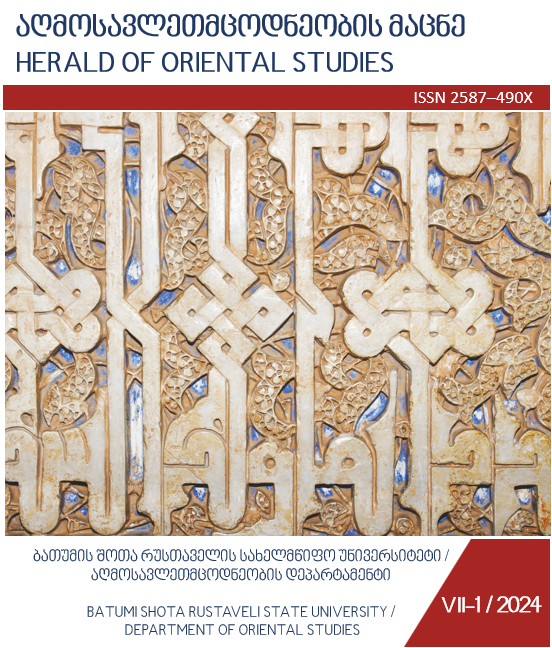
We will remember a person who was the best teacher, a great scientist, a good diplomat, and a person of state vision and actions. A well-known scientist who has long been involved in scientific and educational activities at the Ivane Javakhishvili Tbilisi State University, was born on April 13, 1932, in Georgia (Tbilisi). He established a center of ethnic-confessional research at the Ivane Javahishvili Tbilisi State University, on the Department of History Asia and Africa. Released collections of current Middle East-related subjects and during his time as the head of the department, worked with colleagues and students to present the related subjects of the Middle East in a flexible and analytical way. He personally brought items that were difficult to find in the Soviet Union from several scientific visits abroad. Asked renowned international orientalists to conduct methodological work. His students and colleagues were always supported from him. Personally introduced students to well-known scientists and led them on field trips. Played a significant role in each doctoral dissertation defense. Students studied under his direction and developed their critical writing and teamwork skills. Students were always welcome to attend his lectures and observe his teaching methods. Never fit within. Always went into depth on a certain subject and gave students fascinating details about the Middle East. His sense of humor and camaraderie were great. Students have always felt that he is special to them. He was invited to conduct lectures at the Sorbonne University in France and the Kurdistan University in Iraq. Received a NATO grant. In 2002, under the editorship of Doctor of Historical Sci¬e¬nces Professor Givi Jordania, he published a book intended for students, teachers, graduate students, researchers, and a wide range of other readers interested in the above issues of Oriental studies. He published the following scientific works: 1. AL. Menteshashvili, „From the history of the national liberation movement of the Iraqi Kurds in 1919-1925“. Georgian SSR Academy of Sciences, Institute of Oriental Studies. Tbilisi, Science, Tbilisi ,1965.2. AL. Menteshashvili, `Problems of socio-economic development of modern Iraq“. Academy of Sciences of the USSR of Georgia. G. Tsereteli Institute of Eastern and Western Studies. Tbilisi, Science, Tbilisi, 1980.3. Varlam Donadze, Albert Menteshashvili, Ioseb Tsintsadze, `Recent history of Asian and African countries. II, (1945-1968)“. (ed. V. Donadze) Publishing House of Tbilisi University, Tbilisi, 1970.4. AL. Menteshashvili, „Issues of agrarian relations in modern Kurdistan“. Georgian USSR Academy of Sciences, Institute of Oriental Studies. Tbilisi, Science, 1976.5. AL. Menteshashvili, „Kurds and Kurdistan: issues of socio-economic development“. Soviet Georgia, Tbilisi, 1977.6. AL. Menteshashvili, „Questions of the history of the Kurds of the Middle East: X-XX centuries“. Tbilisi University Publishing House, Tbilisi, 1978.7. AL. Menteshashvili, „Prominent politicians and diplomats of the world / I: from ancient times to 1919“. (Editor: Levan Aleksidze). Tbilisi, University Publishing House, Tbilisi, 2003.8. AL. Menteshashvili, „History of international relations and diplomacy from ancient times to 1799“. (Ed. Givi Jordan). Tbilisi University Publishing House, Tbilisi, 2003. (These books are kept in the National Scientific Library of Georgia).He was also the head of the following scientific researches: 1. Marine Itriashvili, „The place and role of the Maronites in the confessional evolution of Lebanon (XII-XX centuries)“. Tbilisi, 1996.2. Emzar Makaradze, „Cyprus and NATO, Greek-Turkish relations in the 60s-80s of the 20th century“. Tbilisi, 1998.3. Lamzira Khidesheli, „The role of the Berber element in the political arena of the Maghreb countries“, 1993.4. Madonna Gogitidze. „The Ottomans in Russia's Middle East Policy in the Last Third of the 19th Century“. Tbilisi, 2004.5. Zviad Tkabladze, „Foreign policy relations between the Arab Republic of Egypt and the United States in the 70s-90s of the XX century“. Tbilisi, 2006.6. Irakli Gorgiladze, „The place and role of Caspian oil in the foreign policy of the leading states at the turn of the 20th and 21st centuries“. Tbilisi, 2003. As well as monographs, scientific articles, etc. His Personal Library was distinguished by its abundance and variety of books. At the Javakhishvili Tbilisi State University he was elected as head of the department as a high-level professional, with a state vision and a fair personality. He instilled these values in his students and raised them to be scientists/experts at the highest level. Nowadays respected scientists proudly and lovingly recall that they were once doctoral students of such a teacher, and still feel a sense of gratitude: Affiliated professor of the National University of Georgia - Marine Itriashili;Head of the Department of Oriental Studies, Batumi State University named Shota Rustaveli, Professor Emzr Makaradze;Doctor of the National University of Georgia - Lamzira Khidesheli;Doctor of Historical Sciences, Head of the Resource Center of Kobuleti (Adzharia) - Madonna Gogitidze;Orientalist, Doctor - Zviad Tkabladze; Professor of Batumi State University Irakli Gorgiladze. As Professor Emzar Makaradze say: “he was a true citizen and a symbol of Georgian manhood”. Such was Professor Albert Menteshashvili. His death is undoubtedly a great loss for Georgian science. He will always be in our hearts and memories as a talented, highly educated, professional, dear senior colleague, a great person, the best lecturer and scientist.
More...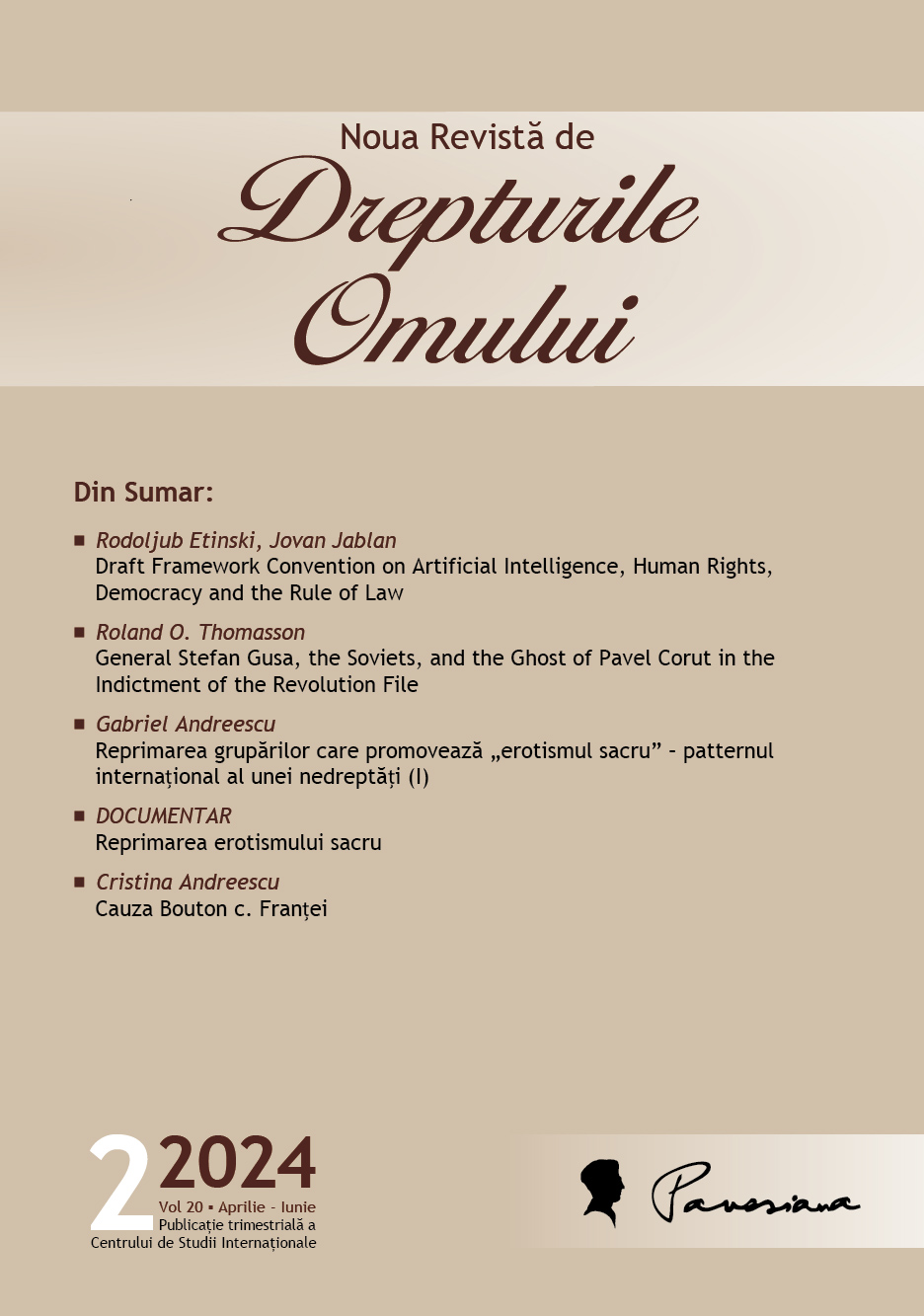
Doumentarul pune față în față, două câte două, mărturiile unor victime și scurte analize (rezultate din investigații) ale acțiunilor represive împotriva membrilor unor grupuri asociate erotismului sacru. Al patrulea dublet constă dintr-un fragment din recenta carte a lui Massimo Introvigne, Sacred Eroticism: Tantra and Eros in MISA, referențială pentru tema reprimării erotismului sacru, și o recenzie a cărții, semnată de Camelia Marin.
More...